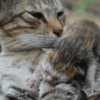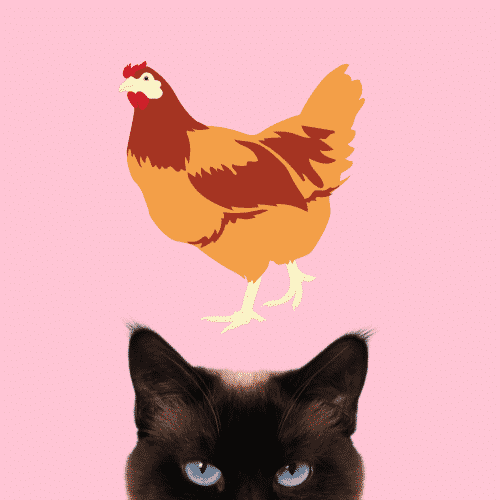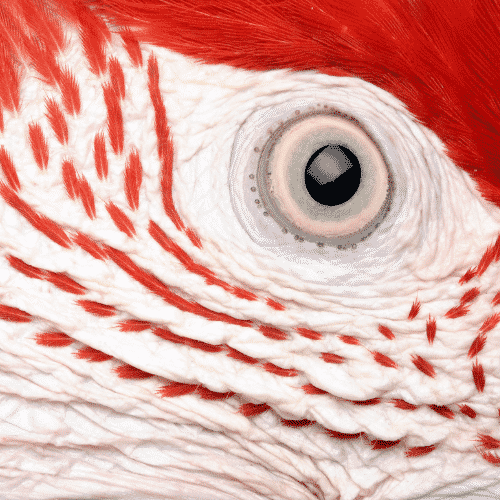Do you know how to tell if a ferret’s poop is healthy or unhealthy?
It’s not clear what the color of poop means to most people so let us help you understand.
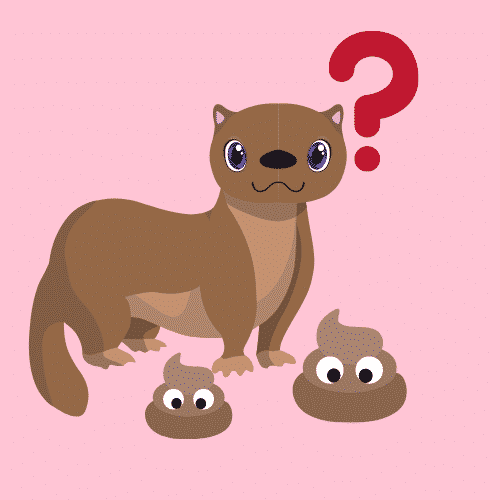
Intestinal issues can manifest in a variety of ways. Read about each hue, why they occur, and other poop-related issues here. What to do, for example, if a ferret is having difficulty pooping or has a nasty poo. Also, if you’d like to compare ferret poop, you may check out the guidelines below.
Where and How Much Do Ferrets Poop?
Everyone poops, and it’s very normal. Ferrets have a high metabolic rate, which causes them to poop frequently throughout the day. Everything about kits is typical and anticipated. Ferrets create more poop while they are young than when they are adults.
Having two litter boxes on hand is a smart idea if you plan on having a ferret. This eliminates the need for them to run inside the cage while playing to relieve themselves.
You should expect to see poop several times a day if you give your ferret high-quality kibble. With raw meat nutrition, however, you will observe less poop on your hands. Because raw meat contains more nutrients than kibble, this is natural. Ferret raw meat poop, on the other hand, can be quite distinct. Prepare yourself for a variety of litter box surprises based on what your pet eats, as litter can vary in color and consistency. My post on ferret nutrition contains additional information about the nutritional value of raw meat.
Understanding the Normal Ferret Poop Chart
Checking your ferret’s poop is an easy way to determine whether or not he is healthy. It comes in a wide spectrum of shades of green, yellow, orange, brown, dark brown, and even black when it comes to color. Structure-wise, it can be hard, soft, runny, seedy (or gritty), and/or mucus-filled; the options are endless.
If your ferret’s feces is out of the ordinary, it could be an indication that he or she is stressed. That’s a non-medical issue you need to deal with as well. Examples include things like going to the vet or seeing other animals while traveling.
A blockage is another major issue that can arise with or without poop. Small pieces of rubber, fabric, plastic, etc. might cause obstructions in your ferret’s digestive tract if he or she eats them. It has the potential to remain in their digestive system, which can be fatal. If your ferret refuses to defecate, this is the most obvious sign that anything is wrong. If your ferret is struggling to poop and the poop comes out thinner than usual, you may have a blockage in its intestines. You should go to the vet immediately if you don’t see excrement and your ferret is vomiting, sleeping all the time, or doesn’t move for any reason.
Normal Healthy Ferret Poop – What You Should Know?
Healthy ferret feces are brown and hard. Ferret poop does resemble toothpaste, as some owners said. This poop is easy to remove and takes only a few seconds to complete.
Ferret Poop Chart With Pictures
Ferret poop comes in a variety of colors and shapes, as already described. By color and structure, I’ll describe the most prevalent poop varieties, along with the underlying causes. Pooches like these aren’t typical. Some necessitate your immediate response, while others require constant monitoring.
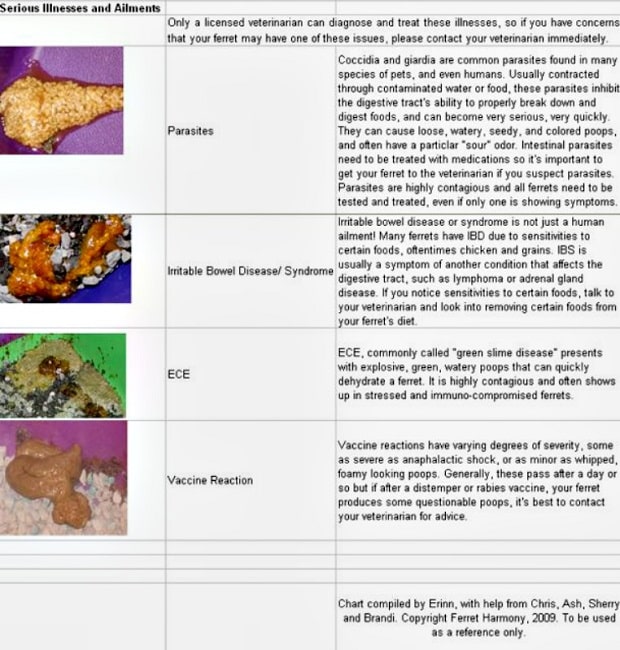
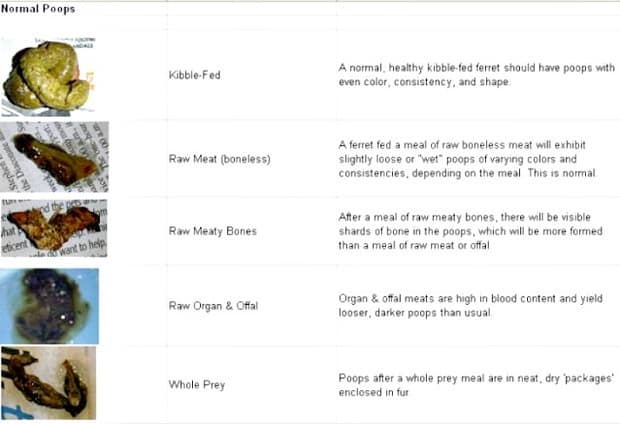
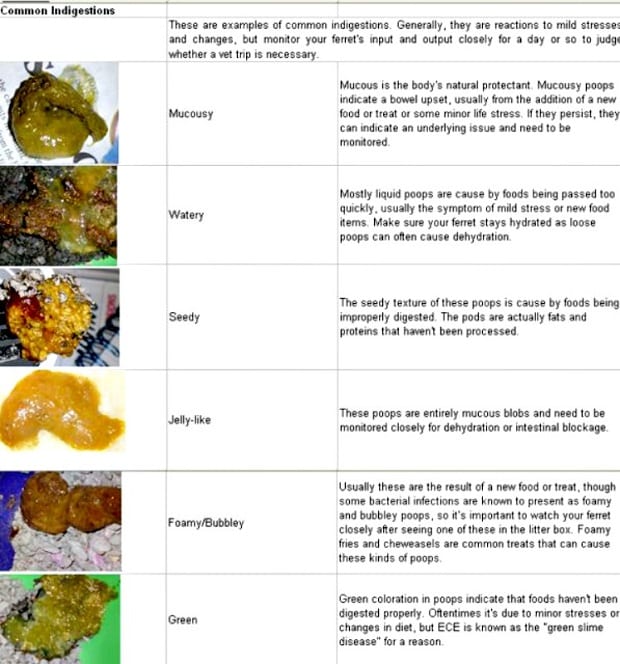
Green Ferret Poop
For obvious reasons, you shouldn’t want to poop in green. 99% of the time, ECE ferret poop is the culprit. ECE – epizootic catarrhal enteritis – is the most prevalent condition that causes green poop, hence the name. Ece affects the gastrointestinal tract, resulting in symptoms such as fatigue, nausea, and an inability to eat.
Ferret owners call it “green slime disease” because of the bright green excrement. This ailment, like many others, can cause symptoms that range from mild to severe. Keep the ferret well-hydrated, since it can lose a lot of fluids quickly with this condition. Keep the infected ferret away from other ferrets in your home since it is highly contagious.
In contrast, if your ferret’s feces have a dark green color, stress may be at blame. This form of excrement may appear if your ferret has been exposed to a stressful setting. You should keep an eye on your ferret and remove stress from his life if you know what it is.
Black Ferret Poop
If you give your ferret raw meat, black poop isn’t necessarily a symptom of a medical problem. You may notice the color of the feces of your ferret if they eat a lot of dark-colored organs such as liver, hearts, and kidneys. It’s also very supple. But only after that particular meal is it normal to feel this way.
Having black feces and eating kibble doesn’t mean that your ferret has a health problem. A tarry or mucusy consistency is often seen along with this particular color of feces. When blood is seen in the stool, the color indicates that it came from a person’s stomach or throat. As a result of being digested, the blood’s color is black. Ferrets are notoriously unwell-behaved animals. That’s a significant issue, and you should see a veterinarian about it.
Understanding Waardenburg Syndrome In Ferrets – A Complete Guide
Bloody Ferret Poop
A ferret’s poop contains blood if the disease is in the intestines, particularly near the anus and rectum. In most cases, the word “injury” refers to some kind of physical harm, which necessitates an appointment with a veterinarian. A prolapsed rectum is one of those “damages,” and it’s quite obvious.
You can tell this feces from the black ferret excrement because the blood hasn’t been digested, therefore it remains red. There is usually pain and issues with defecation when ferrets have bloody feces.
When ferrets eat kibble that contains food dye, red poop is harmless. You should keep an eye out for any indicators of pain in your ferret’s defecations and double-check the ingredients. The best kibbles don’t include dyes, so you don’t have to worry about that.
Yellow Ferret Poop
Yellow ferret poop isn’t always a cause for concern, but you should keep an eye on your ferret just in case. It’s possible that the last meal, particularly if you gave it an egg, made his excrement yellow. There is nothing to be concerned about as a result of this. To be safe, keep an eye on your ferret and wait for the second poop to appear. If the second poop is a normal ferret poop, then there is no need to be concerned.
The difficulty arises when a yellow poop is mixed with seedy ferret poop. Ferrets with yellow liquid poop may be suffering from ECE, which is outlined in the green ferret poop. If there is no other indication, keep an eye on your ferret and separate it if you have other ferrets.
Another possible cause of yellow poop is digestive issues. It’s usually a sign that your ferret’s digestive system isn’t processing its food properly. It may occur only once or on a regular basis. Go to the vet if it happens regularly to get advice. It’s possible that your ferret will benefit from a dietary overhaul.
Orange Ferret Poop
With one exception, the orange ferret excrement is an odd poop in general. Only if you feed your ferret pumpkin can this occur. Because of the risk of hairballs and blockages, you should only feed your ferret pumpkin if you detect a problem.
As with the yellow poop scenario, if you haven’t given your ferret pumpkin and there’s orange poop, it may be the same. To be safe, keep an eye on your ferret and wait for the second poop to see whether something has upset its stomach. Nothing to be concerned about if it’s a regular ferret poop.
What if My Ferret Doesn’t Poop?
You need to act quickly if your ferret hasn’t pooped in the last 12-24 hours. If your ferret isn’t pooping at all or is only pooping in thin strands like spaghetti, you may have a complete or partial obstruction. This is a major issue that can arise from a variety of sources. Rubber, which ferrets love to chew, is the most hazardous to their health. Other hazardous items include sponges, plastics, cloth, and so forth.
Ferrets can die from a blockage if you don’t respond quickly enough. Also harmful is that dehydration from diarrhea and vomiting causes them to lose a lot of fluids. The accumulation of gas in a blocked intestine might be lethal if the intestine is not opened.
However, if you give your ferret raw meat, bones can also become infected. Make sure you respond fast in this circumstance because time is of the essence.
Marshall Ferrets Lifespan – How Long Do Marshall Ferrets Live?
The Bottom Line
Checking the excrement of a ferret isn’t crazy. The consistency, color, and form of the feces can teach you a lot. Ferrets with typical feces are the healthiest, and that is what we all want to see. In most cases, however, this is not the case, therefore we must be prepared.
You can be ready for anything with this ferret poop chart and explanations. Keep an eye on your ferrets’ health and poop on a regular basis.

Doctor of Veterinary Medicine (D.V.M.) at Nation Taiwan University,Master of Science (M.S.) in Biomedical Engineering at National Taiwan University of Science and Technology


